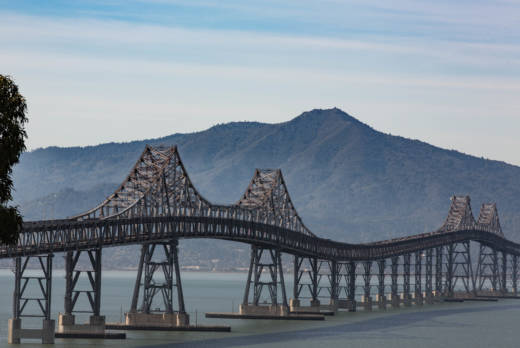Update, 11:15 a.m. Tuesday, July 10: With the Regional Measure 3 count completed, the toll increased prevailed by a 55 to 45 percent. See the table below for final county-by-county results.
Update, 2:30 p.m. Saturday, June 16: With the marathon count nearly finished -- the regional vote tally now stands at 808,814 yes (55 percent), 661,226 no (45 percent). For county-by-county results, see table below.
Original post (June 6): Regional Measure 3, the proposal to increase tolls on Bay Area bridges to pay for what proponents promise will be congestion-busting transit and transportation projects, appears to be on the way to passing as returns trickle in.
At 10 a.m. Friday, with all 4,816 Bay Area precincts counted and elections officials in the nine counties that voted on the measure continuing to tally mail-in and provisional ballots, the count stood at 54.2 percent yes and 45.8 percent no. The measure needed a simple majority of the vote across the region to pass.
Under terms of the measure, tolls on the Bay Area's seven state-owned bridges will rise $1 next Jan. 1. A second $1 increase will take effect Jan. 1, 2022, and a third on Jan. 1, 2025. That will bring the toll to $8 on the Antioch, Benicia, Carquinez, Richmond-San Rafael, San Mateo and Dumbarton bridges. The toll will range from $7 to $9 on the Bay Bridge.
